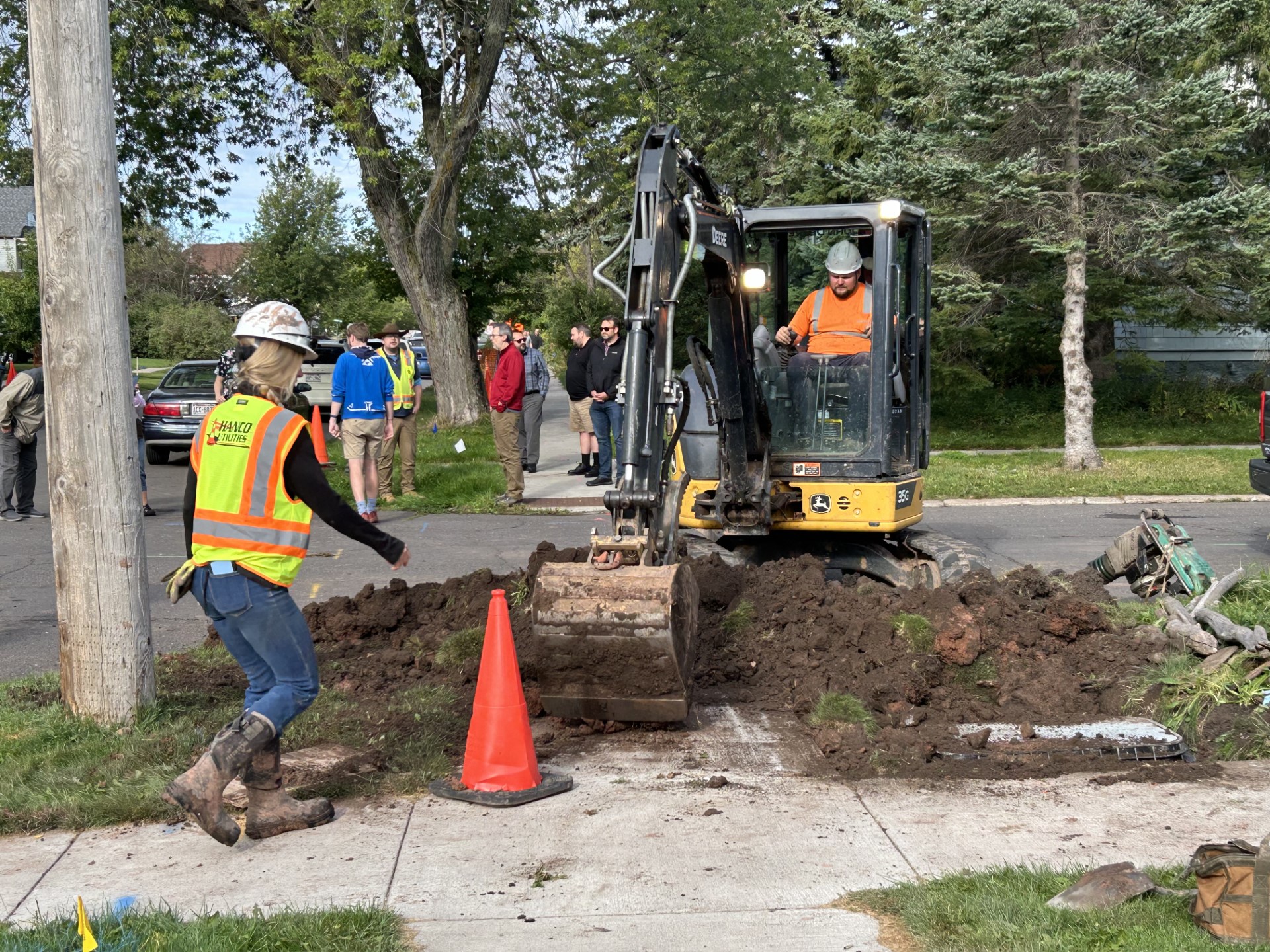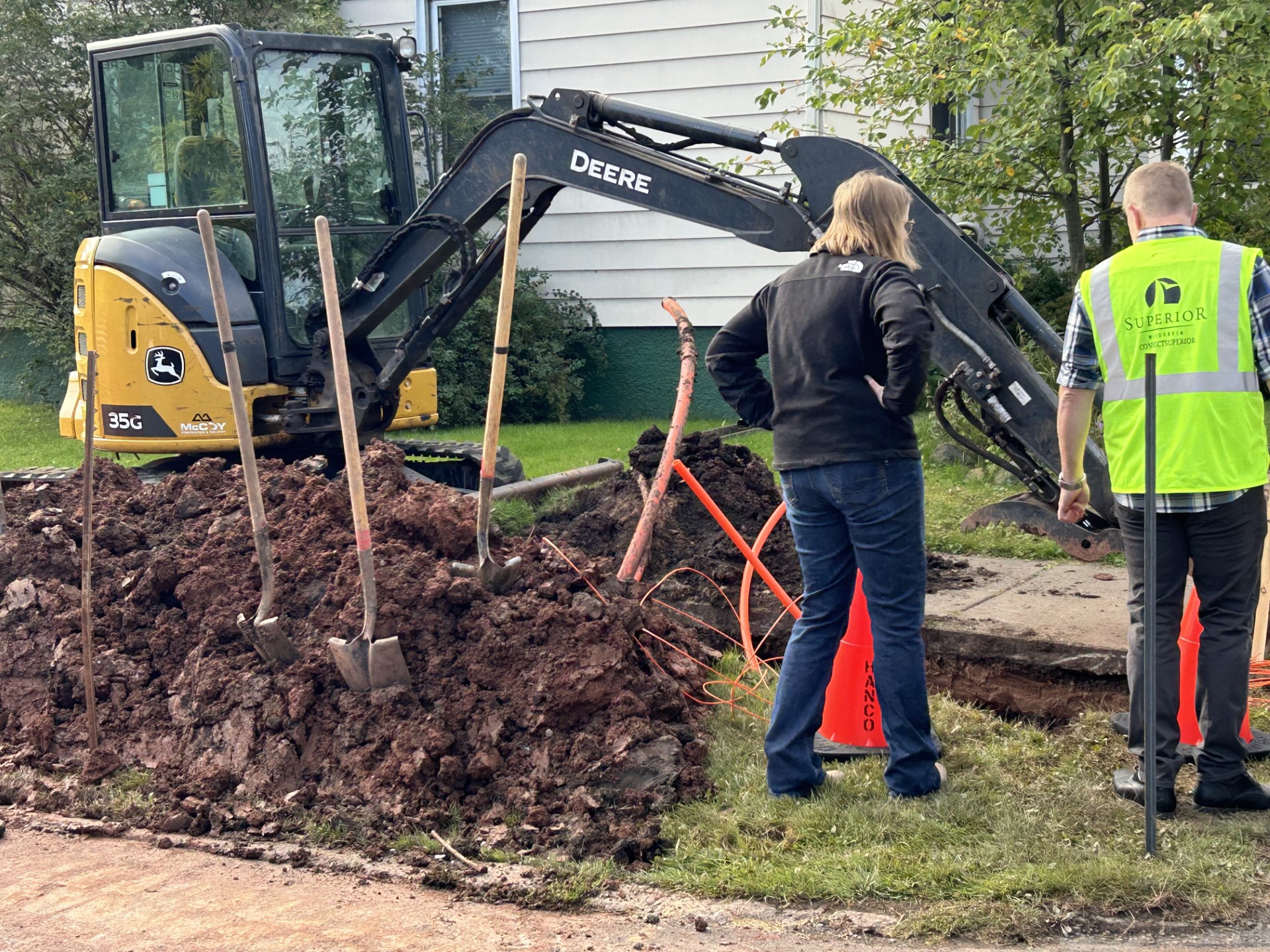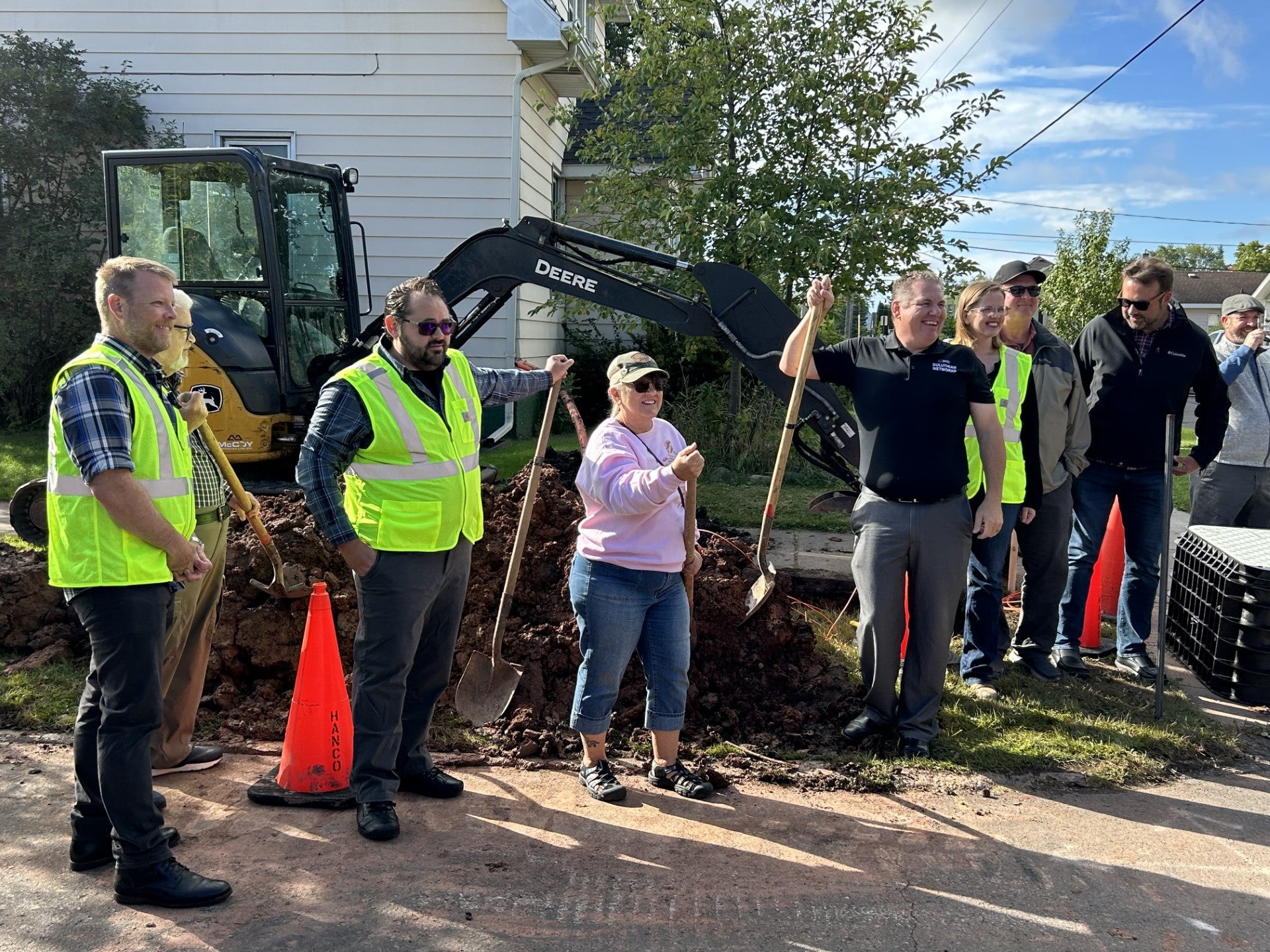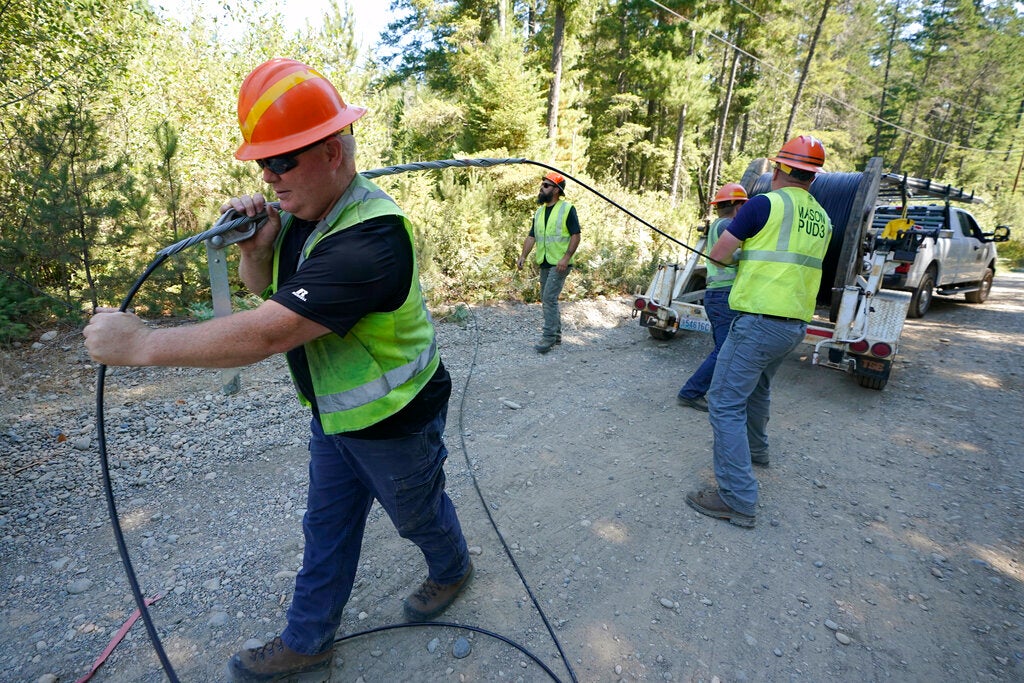The city of Superior recently broke ground on a city-owned fiber network that aims to lower costs and provide more reliable internet service for residents.
Utility crews began installing tubes that house fiber optic cables for the first phase of the ConnectSuperior network in a neighborhood near the University of Wisconsin-Superior on Friday. The fiber installation is expected to cost $1.47 million, and the city has budgeted $6.25 million for the first leg of the project with funding from the American Rescue Plan Act.
The city will own and operate the open access network, which means multiple internet service providers could use it and compete for customers. Superior City Councilor Tylor Elm said many residents and businesses currently have limited options for high-speed internet.
“Private providers haven’t kept up with modern needs. We are left with outdated infrastructure, rising costs and poor service quality,” Elm said. “ Businesses are paying too much for unreliable connections, and too many of our neighbors still lack even the access to fiber.”
The first phase of the buildout is expected to offer service to around 860 households and businesses, according to Stephanie Becken, broadband manager for ConnectSuperior. She said the goal is to build a network that offers high-speed internet to the city’s entire population of roughly 27,000 residents.
She said some parts of the city are underserved because there are fewer people to make the business case for providers to invest in fiber infrastructure.
“We’re not just cherry picking,” Becken said. “Just because it’s hard doesn’t mean we’re not going to do it. It might take us longer, but it’s the goal to do it all.”
The full buildout is anticipated to cost between $40-$60 million, and the city intends to apply for federal funds awarded to the state through the Broadband Equity, Access, and Deployment, or BEAD, program. The money is part of $1.1 billion awarded to Wisconsin to expand access to unserved and underserved areas under the Bipartisan Infrastructure Law.

Superior Mayor Jim Paine said the network represents the city’s first new public utility in more than a century. He said it hasn’t been easy to move forward with the project.
“There are very few locally-owned networks, municipally-owned networks, and that’s because the Legislature made it very, very difficult,” Paine said.
Wisconsin is among 16 states that impose barriers to adopting municipal broadband networks, according to Sean Gonsalves, associate director of communications for the Institute for Local Self-Reliance. He noted Wisconsin law allows municipalities to build the infrastructure to support a network, but they can’t be an internet service provider.
Gonsalves said Superior is among 200 communities nationwide that are offering open access networks, in which municipalities build the network and contract with private providers to offer internet service.
“In areas where these networks exist, you tend to see lower prices, better service, because that’s what they’re focused on,” Gonsalves said. “They’re not having to concern themselves with the huge capital expenditures of building a network before delivering the service.”
Pat Malley is president of Duluthian Networks, a consulting company that represents existing internet carriers. He said he’s negotiating a contract with city officials to become one of the internet service providers on the municipal network.
“We are going to be acting as the interface for the customers and providing the customer service, the phone support, and the actual internet connectivity across the fiber that’s going in,” Malley said.
News with a little more humanity
WPR’s “Wisconsin Today” newsletter keeps you connected to the state you love without feeling overwhelmed. No paywall. No agenda. No corporate filter.

The Institute for Local Self-Reliance estimates around 450 municipal broadband networks currently serve around 700 communities nationwide. That includes 47 networks that have come online in the last three years in states like New York, Vermont and Tennessee. Gonsalves said lockdowns during the COVID-19 pandemic highlighted the need for reliable, affordable internet service.
The city’s network would provide minimum upload and download speeds of 100 megabits per second and speeds as high as 1 gigabit per second or more. Local officials estimate that will cost residential customers between $45 to $65 per month. Paine said the city’s network would provide high-speed internet unlike service offered by existing internet service providers, such as Charter Spectrum and Brightspeed.
“If you’re streaming a movie, nobody tells you what that upload speed is, because nobody ever cared until the pandemic,” Paine said. “When you needed to make a Zoom call and send a high-quality video of your face talking to the world, that requires upload speed. The private sector is terrible at providing that.”
In the same neighborhood, Charter Spectrum offers download speeds of up to a gigabit per second for roughly $118 per month in Superior, excluding discounts. Upload speeds are much lower at 41 megabits per second. Brightspeed, formerly CenturyLink, offers download speeds of up to 15 megabits per second for $50 each month.
In a statement, Spectrum spokesperson Mike Hogan said the company offers gigabit broadband service to Superior customers, adding it continues to invest in its network to provide speeds at competitive prices. A spokesperson for Brightspeed said it’s currently building a fiber broadband network that would reach almost 20,000 sites in Superior and Ashland.
In 2021, the city released the results of a citywide survey in which 73 percent of residents who responded said they would support a municipal network. Becken said city officials are estimating that 40 percent of residents and businesses will utilize the service in the first phase of the buildout, which should be complete by the end of the year.
Wisconsin Public Radio, © Copyright 2025, Board of Regents of the University of Wisconsin System and Wisconsin Educational Communications Board.






